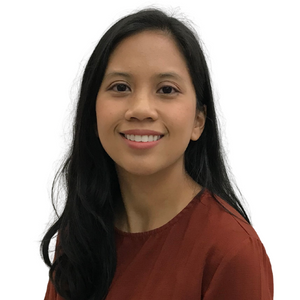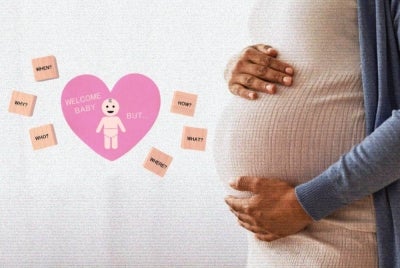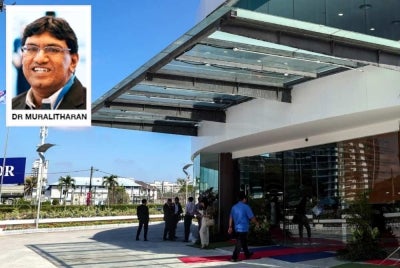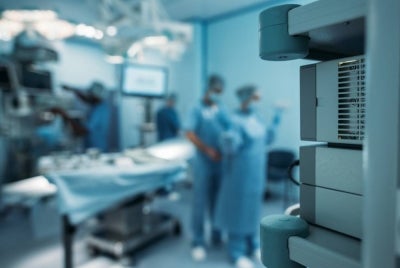Caring for children with Lysosomal Storage Diseases: A parent's perspective
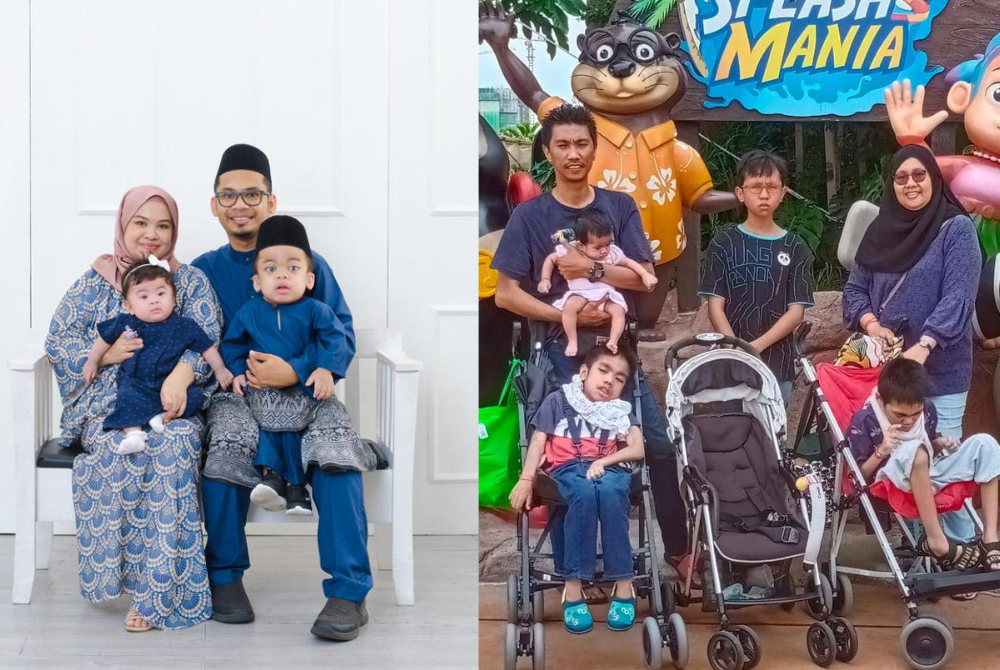
But sometimes, life has its own way of teaching us about the power of acceptance. For 35-year-old Iylia Nabila Mohamad Ramli, being a mother to four children, with three of them diagnosed with Lysosomal Storage Diseases (LSD), specifically Mucopolysaccharidosis type III (MPS Type III), it has certainly taught her to accept what has been written for her.
For the uninitiated, Lysosomal Storage Diseases, is a group of rare genetic diseases due to the defective functioning of lysosomes, an organelle in our cells that functions as a recycling centre.
When the enzymes of the lysosomes do not work properly, waste materials build up in the lysosomes over time and cause damage to the organs of the body.
Patients will typically experience an accumulation of waste materials in their organs, leading to conditions like enlarged liver and spleen, among others. This will cause a difference in clinical features such as a bulging forehead, flat nose, and large lips.
Over time, a patient can experience progressive loss of mobility, vision and hearing impairment, respiratory difficulties, and more, depending on the specific condition.
A child can be diagnosed with LSD if both parents are carriers of the disease.
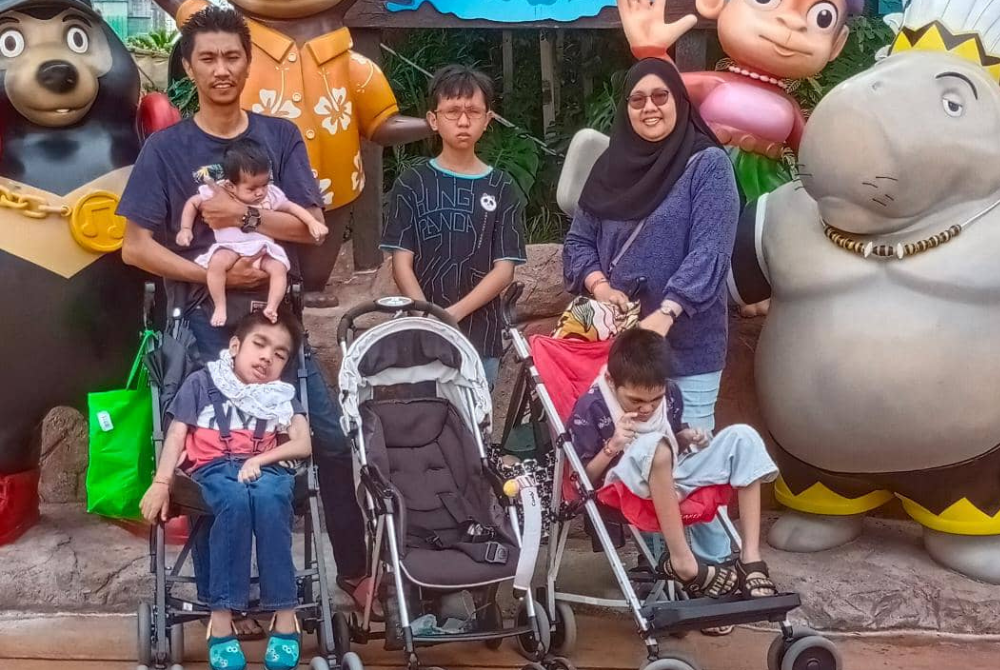
While Iylia’s children, Muhammad Ammar Amsyar Rizuwan (11), Muhammad Aqeef Hizri Rizuwan (eight) and Ainul Safiya Rizuwan (five months) are all diagnosed with MPS Type III, her eldest son Muhammad Adam Asyraf Rizuwan (12), was not affected by the disease.
“I think I almost went crazy when doctors informed me about Ammar’s condition. I had to seek help from a psychiatrist.
“Then I found solace through support groups and associations like the Malaysian Lysosomal Diseases Association (MLDA).
“It was a difficult time but I am lucky to have the support from family members. My sister helps us to care for the children, so this allows me to work to help support the family,” she said.
Iylia and her husband Rizuwan Ahmad Radzi, 37, found out about Ammar’s condition when he turned two.
“At the time, I noticed that there was something wrong with his growth development, and he wasn’t walking normally.
“When we consulted doctors, they told us that it was a possible case of Polio, but that soon proved to be false.
“By the time the doctors were able to pinpoint what his condition was, I was already pregnant with our third child,” she said.
As this is a rare genetic condition, Aqeef was also born with MPS Type III, and it was the same case for her youngest, Ainul.
Since her children were diagnosed with MPS Type III, their growth and development has gradually regressed.
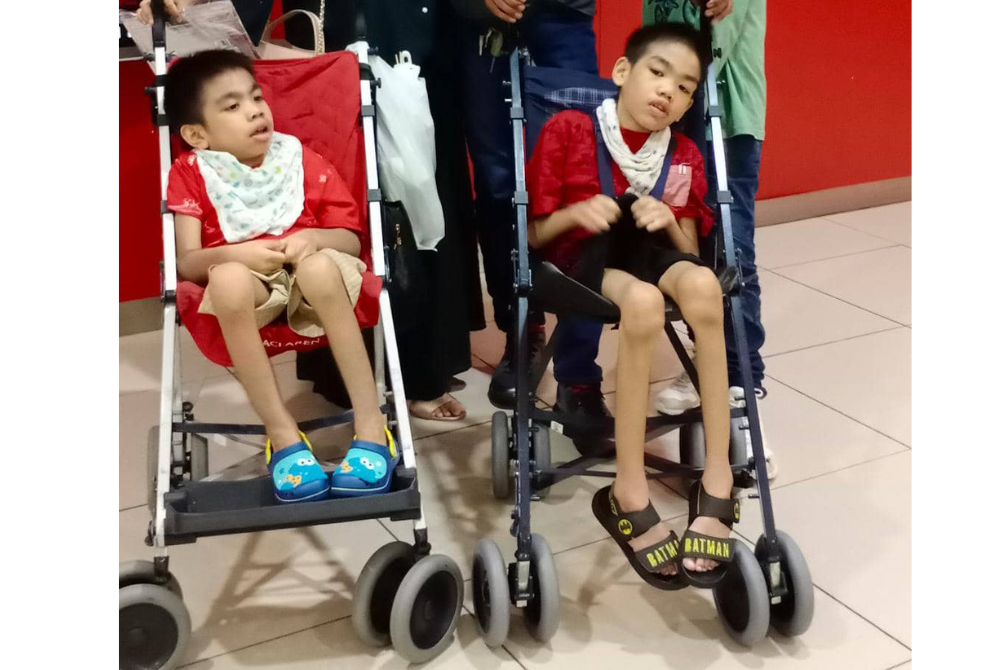
Common symptoms among her children are loss of mobility, hearing impairment, and speech impairment.
Her children also experience forgetfulness, which links to neurological issues. Research has shown that the disease causes childhood dementia.
“The thing about MPS Type III is that there is no treatment for it yet here in Malaysia. While other types of Mucopolysaccharidosis have access to treatments like enzyme replacement therapy (ERT), there is no specific treatment available for MPS Type III.
“What the doctors do is give medication for when the kids experience seizures. Besides that, they go through physiotherapy to help improve their mobility,” said Iylia.
Ammar and Aqeef are also unable to eat solid food as they are unable to swallow properly. They are bedridden as well, making them completely dependent on others to move around.
“I think that’s where the challenge lies. It can be quite daunting physically and mentally. But that’s where moral support is crucial to keep you going and I’m grateful to have that from my family and support groups.
“My eldest, he’s great with helping us out but of course every once in a while he will question why our family isn’t like others.
“We don’t go for outings regularly as there are many things that we worry about when we expose them outdoors. With Covid still lingering, coupled with their weak immune system, there are many health risks,” she said.
Awareness of rare diseases such as this is definitely important, said Iylia.
“If we aren’t aware enough about this disease, how will we adopt the right approach in helping our children?” she said.
A MOTHER'S LOVE KNOWS NO BOUNDARIES
Unlike Iylia, Ain Syahirah Zulkifli didn’t notice anything abnormal with her son’s growth and development before he turned two.
It was by chance that a doctor noticed something abnormal with his clinical features.
“I took him to the clinic for a follow-up appointment. But while I was waiting, a doctor who happened to pass by took one look at him and asked if he was diagnosed with any disease.
“I said no but he requested to have him checked further,” she said.
Doctors took time to run various tests and it was only when Ummar Sayf turned three that they were able to officially diagnose him with Mucopolysaccharidosis Type I (MPS Type I).
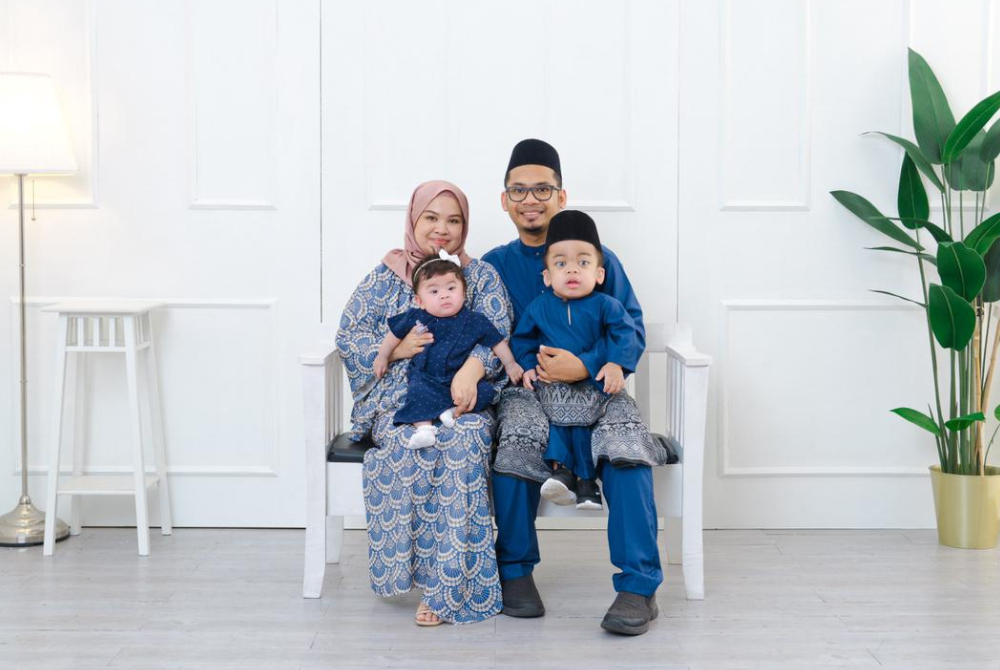
“Little by little, his hearing regressed, and now at the age of six, Ummar wears a hearing aid. He is unable to communicate verbally as well but he has his own ways of telling us his needs and wants,” said Ain.
Her second and youngest child, Iris Aleena who will soon turn nine months, also has MPS Type I and doctors were able to detect the disease while Ain was still pregnant.
Luckily for Ain and her husband, treatment is available for their children. The couple, who resides in Johor Bahru, travels weekly to Kuala Lumpur Hospital (HKL) for their children to receive treatment via Enzyme Replacement Treatment (ERT).
Because little Iris received treatment during her newborn stage, Ain shared that her growth is in an orderly fashion and is on par with babies in the same age group.
Due to the weekly appointment for ERT and various other follow-ups with healthcare professionals from multiple disciplines to address other issues, Ain made the decision to quit her job in order to care for her children.
“When I first learned that my son had MPS Type I, I couldn’t believe it. He is our firstborn, and the first grandchild on both sides of the family. We envisioned a normal, healthy childhood for him.
“But of course, God has bigger plans for us,” she said.
EMOTIONAL AND FINANCIAL BURDEN
Raising children is challenging as it is. Raising children that require special needs requires extra care, patience, and perseverance.
“As a parent, I think the hardest part for me is teaching them how to be independent, especially when they grow older.
“I constantly worry how they will manage themselves or how others can help to care for them in the future if I’m no longer around.
“But right now, while they are at this age, I also worry about how they will mix with their peers and how other kids will perceive them.
“I think it’s important for all parents to educate their young ones on how to interact with kids who don’t appear normal like others. Be kind and have empathy,” she said.
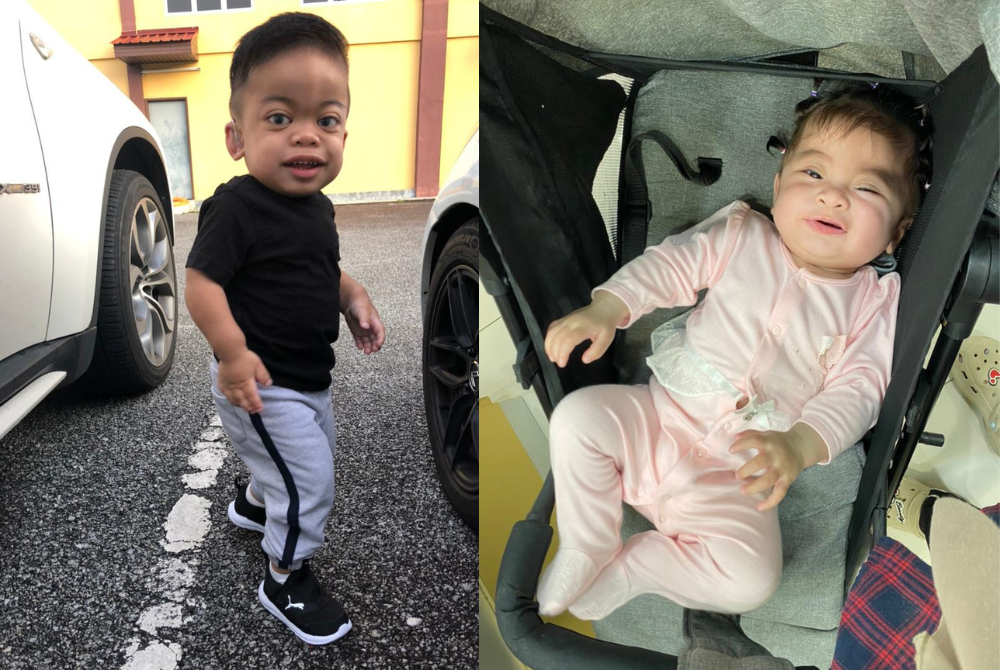
Ain shared that the cost of the treatment can go up to RM300,000 a year per child.
“While I am able to receive financial aid for the treatments, we do have to find ways to support our commute from Johor Bahru to Kuala Lumpur every week. As a single-income family, it is a little challenging,” she said.
The ERT treatment is where an enzyme is manufactured using genetic engineering technology and given to patients by intravenous infusion to replace the missing lysosomal enzyme.
Basically, the enzyme is delivered directly into the bloodstream via a regulated drip of fluids. Doing this requires patience as it takes three to four hours for it to be fully administered.
“It can be quite difficult for Iris to sit still as she is in her phase of wanting to climb and move about, but Umar has gotten used to it so he would patiently wait for the treatment to complete,” said Ain.
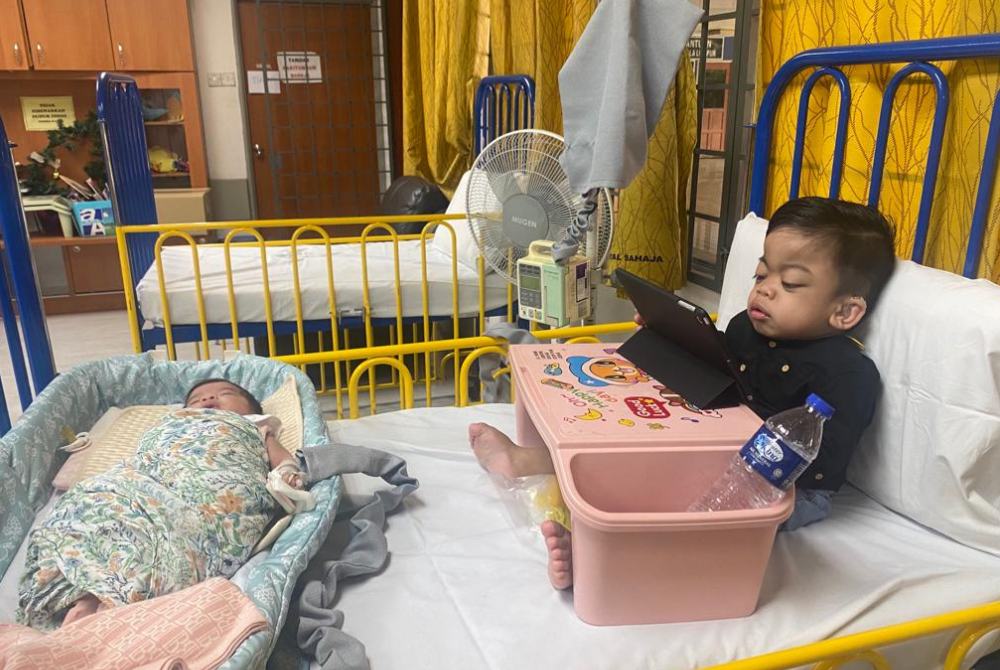
Like Iylia, Ain said family support is what truly matters to get through this immensely difficult challenge. She is also grateful to have support from associations like the Malaysian Lysosomal Diseases Association (MLDA) which provides assistance in various forms.
"I'm grateful for the initiatives launched by MLDA such as the Ride With Hope charity event which aims to raise awareness on LSDs. Recently Ummar's hearing aid malfunctioned, so they helped to get it fixed," she said.
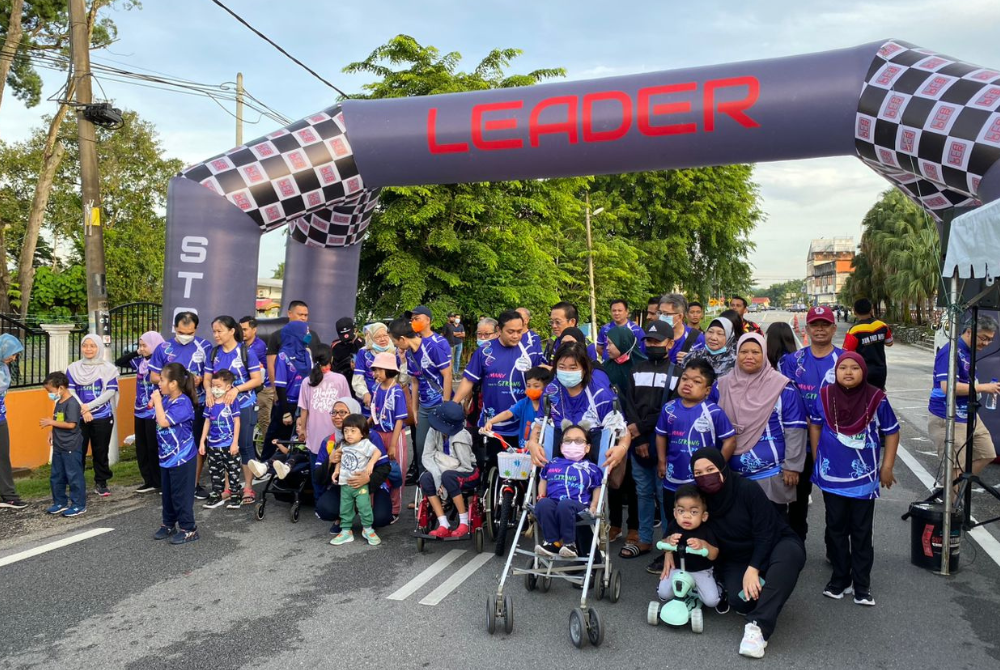
"I hope there will be more awareness of this rare disease in the community. It's important for us to be aware and educated to avoid making assumptions as to why a child's development isn't normal," she said.
She explained her encounters with people, especially the elderly Malays who tend to associate the disease with superstitious beliefs.
“I've been told to seek treatments through traditional medicine or spiritual healers. If we are not well educated on the actual disease and blindly take the wrong approach to treatments, it will obviously lead to a poor outcome.
“A better understanding of this is crucially needed,” she said.
Download Sinar Daily application.Click Here!
